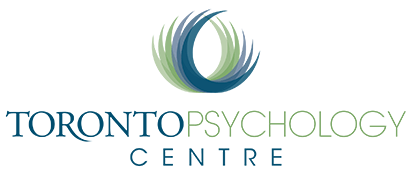
Psychoeducational Assessment For Learning Disabilities
Solving The Disconnect Between Your Potential and Performance
Toronto Psychology Centre is committed to helping you identify and understand your learning needs. We provide comprehensive psychoeducational assessments for children, adolescents, and adults to identify learning profiles and detect any Learning Disabilities. Gaining a clear understanding of one’s learning profile can be very helpful in making decisions about academic, career, and life goals.
Children and adolescents are typically referred for an assessment by their parents, family doctor/pediatrician, or school. Young adults often seek testing just prior to attending college or university (which may be required) in order to confirm a Learning Disability and determine any necessary accommodations. Other adults may seek to know if they have a formal Learning Disability based on their past experiences (e.g., struggled in school) and are having difficulty in some aspect of their life (e.g., occupationally-related).
- Identifying a Learning Disability
- What to expect from testing for a Learning Disability
- Accommodations for Learning Disabilities
Identifying A Learning Disability
Learning Disability (LD) is a term that includes a wide range of learning difficulties. For example, an LD in reading may be due to underlying language processing difficulties, whereas an LD in writing may be due to underlying visual-spatial processing difficulties or fine motor challenges. Learning Disabilities are typically diagnosed in school-aged children who are struggling to meet expectations in the classroom. It is not a problem with intelligence or motivation. Children, adolescents, or adults with Learning Disabilities may see, hear and process new information differently, which interferes with their ability to demonstrate how much they actually know and understand.
What To Expect From Testing
A psychoeducational assessment involves a standardized administration of specific tests to evaluate an individual’s cognitive potential, adaptive functioning, academic abilities, and socio-emotional skills and/or behavioural functioning. The assessment will include a structured interview, assessment of cognitive potential, academic achievement, measures of attention, memory, and phonological processing. The purpose of the assessment is to provide an accurate portrait of an individual’s learning strengths and needs in a variety of contexts, using a combination of subjective and objective data collected from the individual, parents, and also teachers.
Despite the use of a standardized assessment procedure, all psychoeducational assessments must also be tailored to the individual. For example, testing administration time may vary according to the specific referral question being posed, to the specific selection of tests used during administration, and as well to the specific needs of the individual such as requiring one or several testing sessions (based on age and ability to concentrate for prolonged periods of time). Upon completion of a psychoeducational assessment, we provide a debriefing session to share the results with you, discuss recommendations, as well as address any of your questions.
In the case of children and adolescents, the assessment report may be used to develop an Individual Education Plan (IEP) at school. The assessment report can also assist with accessing services in the community, facilitate consultation with other professionals working with your child, or to determine eligibility for government funding.
Accommodations
Children and adolescents with Learning Disabilities can receive accommodations to assist them with their learning needs and capture their strengths. The need for individual accommodations has become more understood and recognized across educational settings.
Our psychologists conducting psychoeducational assessments for Learning Disabilities are familiar with school board requirements, including post-secondary educational institutions. Colleges and universities typically require a student with a Learning Disability to register with their Accessibility Services in order to receive accommodations. Often, an up-to-date assessment or reassessment prior to entering school is necessary to receive these services. Accommodations can be provided for different types of learning needs such as those related to learning in the classroom, completing homework and assignments, and for test-preparation or completing examinations.
Please contact us to find out more about Psychoeducational Assessment for Learning Disabilities.
